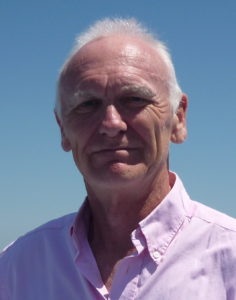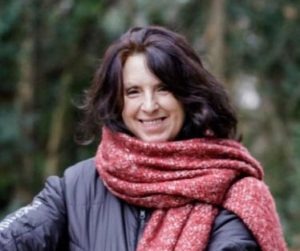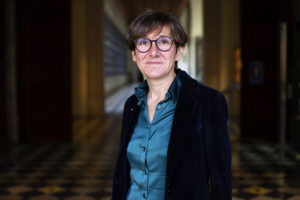MICHAEL ROBERTS
 Michael Roberts is an economist who worked for various financial institutions in the City of London for over 40 years. He is author of several books: The Great Recession – a Marxist view (2009); The Long Depression (2016); World in Crisis ed (2018), Marx 200 (2018), Engels 200 (2020) and Capitalism in the 21st Century (2023). He has lectured and presented at many universities and events around the world including UNAM, Mexico, State University of Rio de Janeiro, Brock University, Toronto, SOAS London, Open University, London etc. And he blogs regularly on Marxist economics and the world economy at: thenextrecession.wordpress.com
Michael Roberts is an economist who worked for various financial institutions in the City of London for over 40 years. He is author of several books: The Great Recession – a Marxist view (2009); The Long Depression (2016); World in Crisis ed (2018), Marx 200 (2018), Engels 200 (2020) and Capitalism in the 21st Century (2023). He has lectured and presented at many universities and events around the world including UNAM, Mexico, State University of Rio de Janeiro, Brock University, Toronto, SOAS London, Open University, London etc. And he blogs regularly on Marxist economics and the world economy at: thenextrecession.wordpress.com
«The polycrisis of capitalism in the 21st century»
As we enter the third decade of the 21st century, the world capitalist economy is in trouble.
There are four major contradictions emerging (for which evidence will be provided):
- Already there have been two major slumps (2008-9) and 2020 that have been deeper than even the Depression of the 1930s. And global economic growth and living standards for the vast majority are stagnating in a Long Depression.
- Inequality of income and wealth between rich and poor countries and also within countries is rising, while poverty remains the situation for billions. This will increase social divisions and encourage the rise of right-wing anti-democratic ‘populist’ movements.
- The rapacious drive to increase profits and avoid the secular tendency for profitability in capitalist production to fall has now led to uncontrolled industrialisation and the destruction of nature and the environment. Greenhouse gas emissions have risen nearly to a tipping point that threatens irreversible damage to the planet and its species.
- The Great Moderation of the 1980s and 1990s that supposedly saw the global expansion of trade and finance has come to an end. The US hegemony in the world economy is giving way to economic fragmentation and a new world order of rival powers. This is increasing the danger of geopolitical conflict that is reminiscent of the 1930s.
These serious contradictions in 21st century capitalism can only be resolved by moving away from a private profit system of production to a planned economy collectively owned and controlled by working people. That will require an international approach to deal with each of these world-wide contradictions.
MARGARITA MEDIAVILLA
 Margarita Mediavilla is graduated in Physical Sciences and PhD by the University of Valladolid. She is a full professor in the Department of Systems Engineering and Automation of the School of Industrial Engineering of the University of Valladolid. Her research has focused since 2008 on systems dynamics applied to energy-economy-environment models (WoLiM, MEDEAS) and on the study of the transition towards renewable energies in the context of the depletion of fossil resources and change climate. Since 2016 she has been working on the European project MEDEAS (http://www.medeas.eu/), which aims to create a new tool for decision-making in the transition of the European Union towards a sustainable energy system.
Margarita Mediavilla is graduated in Physical Sciences and PhD by the University of Valladolid. She is a full professor in the Department of Systems Engineering and Automation of the School of Industrial Engineering of the University of Valladolid. Her research has focused since 2008 on systems dynamics applied to energy-economy-environment models (WoLiM, MEDEAS) and on the study of the transition towards renewable energies in the context of the depletion of fossil resources and change climate. Since 2016 she has been working on the European project MEDEAS (http://www.medeas.eu/), which aims to create a new tool for decision-making in the transition of the European Union towards a sustainable energy system.
She participates in publications and discussion forums such as the Ultima Llamada blog, 15/15 15 Magazine and the Foro Transiciones, as well as in movements to promote food sovereignty and ecological consumption (Ecogermen) and Ecologistas en Acción.
AURELIA MAÑÉ
Trained as an economist, with a subsequent specialisation in international relations. Professor of international economic policy and the political economy of energy at the University of Barcelona and the University of Göttingen. In addition to this main activity, she has been an associate professor at the Joseph Korbel School of International Studies at the University of Denver (USA) and, for research in the field of transitions and the history of energy, Honorary Research Fellow at the School of History at the University of East Anglia (UK).
Since the early 1990s, when she started working on Algeria’s economy, she has had a double specialisation. On the one hand, the subject of the political economy of energy, she has focused on five areas: the internal functioning of economies rich in natural resources (rentierism), the evolution and trends of actors on the international energy scene, geo-energy, energy policy and history, and energy transitions. On the other hand, from the point of view of area studies, her activity has been directed towards the study of Algeria, the Middle East and Central Asia.
This research activity has resulted in several scientific and popular publications (https://www.researchgate.net/profile/Aurelia-Mane-Estrada/publications), including the books «Algeria in transition towards a second republic», published by Icaria in 2019, and «El gran negocio mundial de la energía», published in 2016 by RBA editores.
Currently, she is a member of the Economic History and Development (Industry, Business and Sustainability) of the University of Barcelona; a member of the Group of Studies on Arab and Muslim Societies (GRESAM) of the University of Castilla – La Mancha, as well as a member of the Energy and Climate Change group of the Elcano Royal Institute. Her knowledge transfer activities include having created and been director (2007-2009) of the Central Asia Observatory of Casa Asia.
In the field of university management, at the University of Barcelona, she has been Academic Secretary of the Faculty of Economics and Business (2007-2009), Rector’s Delegate for Mobility and International Programmes (2017-2020) and Vice-Director of its Doctoral School (EDUB) between 2021 and 2023.
